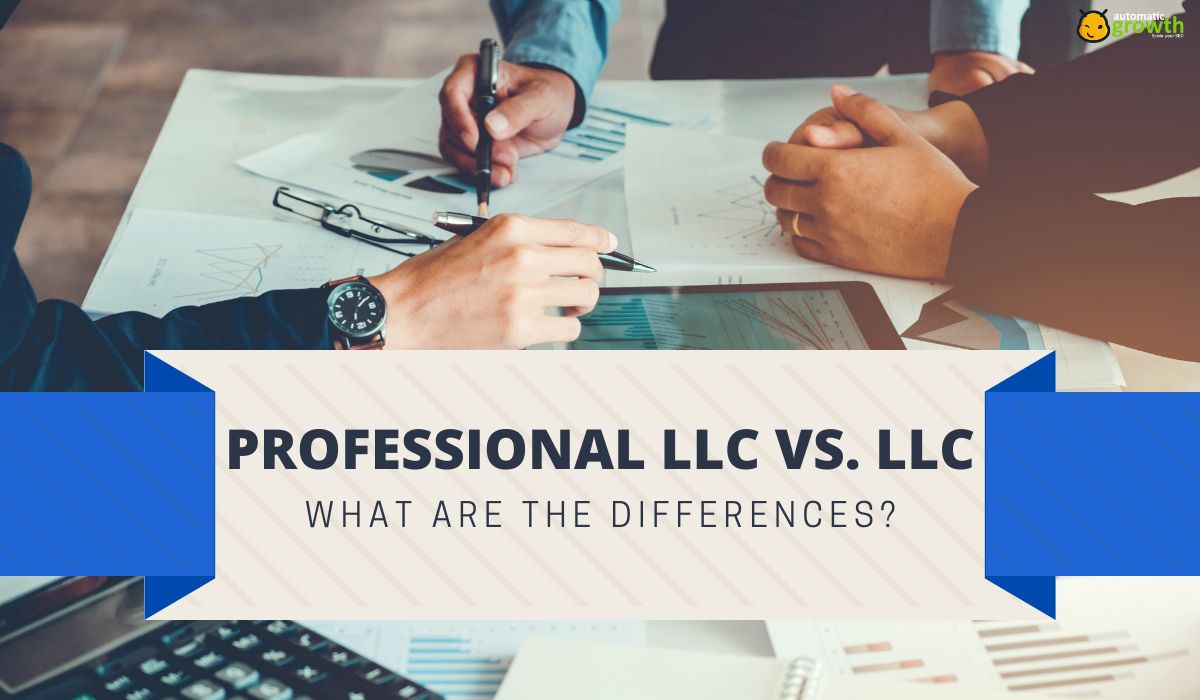Entrepreneurs comparing professional and standard LLCs must understand their differences. A Professional LLC is tailored for licensed professionals, offering industry-specific liability and tax advantages, crucial for those in fields like law, medicine, or accounting.
In contrast, a standard LLC provides management flexibility and varied profit distribution, making it a versatile choice for a wide range of businesses. This post explores their features, eligibility, and implications for business owners, delving into the key distinctions between a professional LLC vs. LLC to guide your decision-making process.
Eligibility for Forming a PLLC
Professionals' Eligibility
Eligible professionals like doctors, lawyers, and accountants can form a Professional Limited Liability Company (PLLC) for asset protection from business liabilities. Eligibility varies by state, with specific rules requiring all PLLC members to have valid professional licenses.
Licensing Requirements
To form a PLLC, professionals must meet state-specific licensing criteria. This involves obtaining approval from the relevant state licensing agency and ensuring members have the necessary qualifications and credentials to practice their professions legally within the state.
Key Differences Between PLLC and LLC
A Professional Limited Liability Company (PLLC) is intended for licensed professionals like doctors and lawyers, while a Limited Liability Company (LLC) suits any business type, including non-professional services. PLLCs require members to be licensed in their operational field, unlike LLCs, which accept members from various industries.
PLLCs must include specific language in their organizational articles about the professional services offered. While both PLLCs and LLCs provide limited liability protection, PLLCs limit this to business-related actions, whereas LLCs may expose personal assets to risk from actions outside professional duties.
Ownership and Management Structures in LLCs vs. PLLCs
Management Structure
In a Professional Limited Liability Company (PLLC), licensed professionals typically hold greater control over management compared to a regular Limited Liability Company (LLC), where members can self-manage or appoint external managers. For instance, attorneys in a PLLC have more decision-making power than LLC members, who may hire non-member managers.
Business Structure
Both LLCs and PLLCs protect owners' personal assets and offer flexible management. However, PLLCs face ownership restrictions due to professional regulations by state governing bodies. Entrepreneurs should consider these differences in management and ownership when choosing the structure that best suits their business needs and goals.
Tax Implications of PLLC vs. LLC
Pass-Through Taxation
Both PLLCs and LLCs benefit from pass-through taxation, where profits are not taxed at the business level but are reported on the owners' personal tax returns. This structure avoids the double taxation seen in C corporations, where both the entity and shareholders are taxed.
Profession-Specific Tax Treatment
The tax treatment for PLLCs can vary by profession, with different considerations for healthcare, legal, or engineering professionals. Industry-specific tax implications, licensing requirements, and professional liabilities may affect income and employment taxes in PLLCs. Entrepreneurs should seek advice from tax professionals knowledgeable in their industry to understand any unique tax obligations when choosing between an LLC and a PLLC.
Liability Protection in LLCs vs. PLLCs
Similar Limited Liability Protection
Both LLCs and PLLCs provide limited liability protection, shielding members' personal assets from business debts and legal actions. In LLCs, personal finances are protected from business liabilities, while in PLLCs, members are typically not liable for other professionals' malpractice within the company.
Professional Malpractice Implications
In PLLCs, each member may be accountable for their own malpractice, potentially affecting other members. Conversely, in LLCs, where members are not licensed professionals like doctors or lawyers, liability for malpractice is less common unless directly involved. Both structures offer liability protection, but they differ in handling professional malpractice.
Compliance and Malpractice Insurance for PLLCs
Compliance Requirements
Operating a PLLC demands adherence to professional standards and regulations, including industry-specific guidelines and ethical standards. For instance, physicians must follow their state licensing board's regulations. Entrepreneurs must stay informed about regulatory changes to ensure their PLLC remains compliant, avoiding legal issues from malpractice or negligence.
Mandatory Malpractice Insurance
Professionals in a PLLC often require malpractice insurance, providing coverage against claims from errors or omissions in services. This insurance is crucial for protecting both the individual and the PLLC from the financial consequences of malpractice suits. Understanding malpractice insurance requirements is vital for entrepreneurs starting a PLLC in their specific profession and location.
Advantages and Disadvantages of PLLCs vs. LLCs
Enhanced Credibility for Professional Practices
PLLCs often enhance the credibility of professional practices, like law firms, making them appear more reputable than standard LLCs. This can attract clients in regulated industries. However, PLLCs face stricter regulatory requirements, leading to additional oversight, compliance obligations, and potentially higher operational costs.
Flexibility in Ownership and Management Structures
LLCs offer significant flexibility in ownership and management, allowing entrepreneurs to tailor their business management without industry-specific regulations. While this autonomy is advantageous, it can also present challenges in navigating management options without clear, profession-specific guidelines, which might be overwhelming for some entrepreneurs.
Criteria for Choosing Between PLLC and LLC
Licensing Regulations
Entrepreneurs must consider licensing regulations when choosing between a PLLC and an LLC. Certain professions, like doctors or lawyers, often require a PLLC due to state-specific rules. Non-compliance can lead to penalties. For example, dentists must form a PLLC to comply with healthcare licensing regulations.
Personal Liability Protection
The choice between a PLLC and an LLC also depends on the needed level of personal liability protection. A PLLC offers extra safeguards against liabilities from other members' malpractice. For instance, architects might prefer a PLLC for protection against colleagues' errors.
Administrative Responsibilities
Assessing administrative responsibilities is vital. PLLCs generally have more stringent administrative duties than LLCs, especially in regulated professional services, affecting solo and small business owners.
Conclusion
When choosing between a PLLC and an LLC, entrepreneurs must weigh factors like eligibility, ownership, tax implications, and liability protection. Each structure has unique advantages and challenges, requiring careful consideration of business needs and goals. Professional legal and financial advice is crucial for tailored insights and effective decision-making, helping entrepreneurs establish a strong foundation for their business.
Learn more about the best state to start an LLC for small businesses from our resources at Automatic Growth.
















